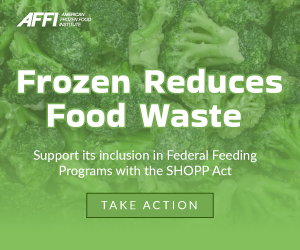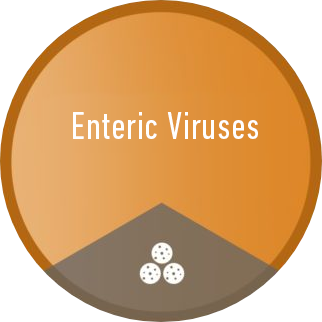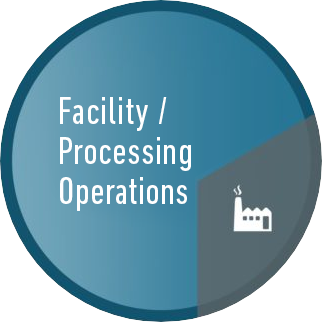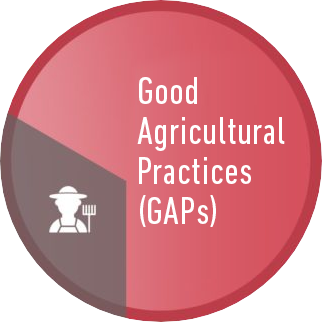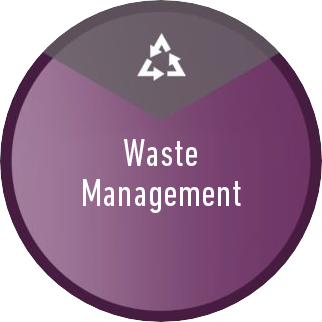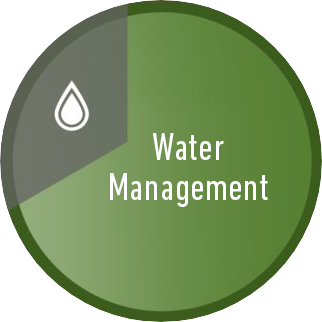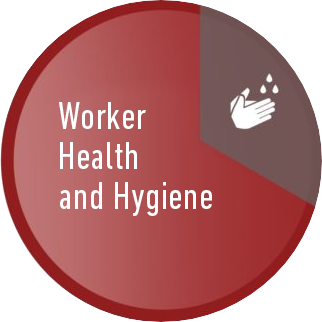Waste Management
Waste Management
The proper management of waste is essential to enteric virus prevention and control as it protects both human health and the environment. This section provides key principles and resources to guide clean-up plans for bodily fluids, proper storage of manure, appropriate handling of animal intrusion on farms and fields.
Post-harvest: Resource materials include management of personnel, proper clean-up and disinfection methods, and food handling education and training materials.
Waste Management Recommendations
Recommendations
To download these free resources, please login as an AFFI member or create a non-member profile first.
Clean-up procedures related to contamination with Enteric Viruses
Harvest
Develop a clean-up plan to manage release of bodily fluids resulting from vomiting or diarrhea as they are possible source of virus contamination
1. Train employees on procedures to handle clean-up of contaminated surfaces and safe disposal of contaminated products (food and non-food) exposed to bodily fluid to prevent further cross contamination.
Clean-up procedures related to contamination with Enteric Viruses
Pre-Harvest
Develop a clean-up plan to manage release of bodily fluids resulting from vomiting or diarrhea as they are possible sources of virus contamination
1. Train employees on procedures to handle clean-up of contaminated surfaces and safe disposal of contaminated products (food and non-food) exposed to bodily fluid to prevent further cross contamination.
2. Establish an employee health monitoring procedure
Criteria for Fruit Harvesting
Harvest
Criteria for Fruit Harvesting
1. Establish a procedure to prevent harvesting overripe, decayed, or damaged fruits, fruits that have dropped to the ground, fruits damaged by animals, pests, or insects, fruits contaminated by feces.
2. Train workers on criteria for fruit harvesting.
Field Inspection
Harvest
All farms and fields should be inspected prior to harvest.
Field Assessment of Animal Intrusion and Activity (California LGMA)
1. Inspect fields for evidence of animal/pest activities, feces, damaged fruits, ripe or overripe fruits dropped on the ground, fruits damaged by flooding
Maintaining Hygienic Conditions in Packing and Processing Areas
Post-Harvest
After harvest, fruits should be packed and processed under hygienic conditions
1. Shield these areas from intrusion by animals, birds and pests.
2. Ideally, all cleaning, packing and processing activities should occur in indoor areas which are protected by walls, doors and roof; If these areas are not sheltered appropriately and exposed to the outdoors, then install other barriers such as netting.
Management of Bathroom and Restroom Facilities
Harvest
Proper management of portable toilets and grey water from handwashing
Management of Septic Tank Units
Harvest
Documentation of Septic Tank Management
1. Records of septic tank pumping should be maintained and completed by an authorized third-party service provider.
Monitoring Employee Health
Harvest
Monitoring employee health conditions, especially prior to harvest, helps preclude sick employees from coming to work and potentially infecting other employees and contaminating food
Farm Food Safety Checklist for Worker Health and Hygiene (FDA)
Agricultural Employer Checklist for Creating a COVID-19 Assessment and Control Plan (CDC)
1. Farm management should incorporate active health monitoring systems
2. Operations should develop a detailed employee health monitoring procedure
3. All health monitoring activities should be documented and stored for easy retrieval.
Removal of Trash and Waste
Post-Harvest
Trash and waste management is a critical component of clean and hygienic environment.
1. Remove any packaging material, extraneous matter and other non-produce waste from the field.
Use of Restroom and Bathroom Facilities
Harvest
Proper use of bathrooms and restrooms
1. Reinforce the importance of proper hygiene in restrooms and bathrooms
2. Educate the importance and food safety risks associated with improper use of bathrooms before and during harvesting activities.
Use of Soil Amendments
Pre-Harvest
Raw manure may be used in the farm as a soil amendment
1. Manure should be treated and stored properly to avoid contamination with workers, food, equipment and tools


